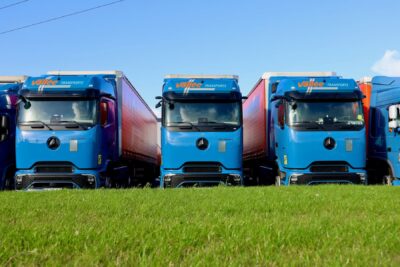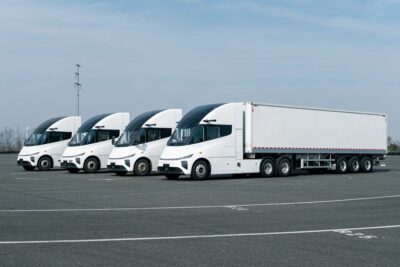France to utilise hydrogen across all sectors
Minister of Environment, Nicolas Hulot, has a new strategy as he aims for France to draw heavily on hydrogen and fuel cell technology. The plan includes all levels of the country’s economy and details a turn in transport through FCVs and infrastructure.
The “plan Hydrogène” or hydrogen strategy is “to make France a world leader in this technology,” according to Minister Hulot. President Macron’s man for the environment has managed to carve out a budget of 100 million euros to be allocated from 2019.
Whilst the plan entails industry and the energy market as well, a big part of the transition relies on transport. Hydrogen charging infrastructure is planned with 100 hydrogen filling stations to be installed throughout 2023. By 2028, their number shall increase to between 400 and 1,000 H2 stops ideally.
They are to keep 5,000 fuel cell vehicles going, particularly in the commercial sector. The hydrogen strategy also includes heavier CVs such as fuel cell buses, trucks and even ships. By 2023, Minister Hulot aims for 200 of such heavy vehicles and wants to see their number grow to 20,000 – 50,000 light commercial vehicles and between 800 and 2,000 heavier ones by 2028. A parliamentary mission is to look into the feasibility of hydrogen trains later this year as well.
A framework for the regulation of filling station is in the making. Funding and coordination of the transition lies with ADEME, the French Environment and Energy Management Agency. The government also plans the creation of an international center for qualification and certification of high-pressure components for road transport, aeronautics, maritime, river, and railway using hydrogen.
Overall, France wants to instil hydrogen in the industry, aiming for 10 percent by 2023 and between 20% to 40% by 2028. To measure their progress, a tracing system is to be introduced by 2020 as part of the European framework under discussion, that is the revision of the renewable energy directive.
It appears as if both the largest nations of Europe, Germany and France, have come into their regulatory power, targeting industry and logistics for a turn in transport (Verkehrswende) rather than private tax payers. Germany proposed a new scheme today to subsidise electric and fuel cell trucks.





0 Comments